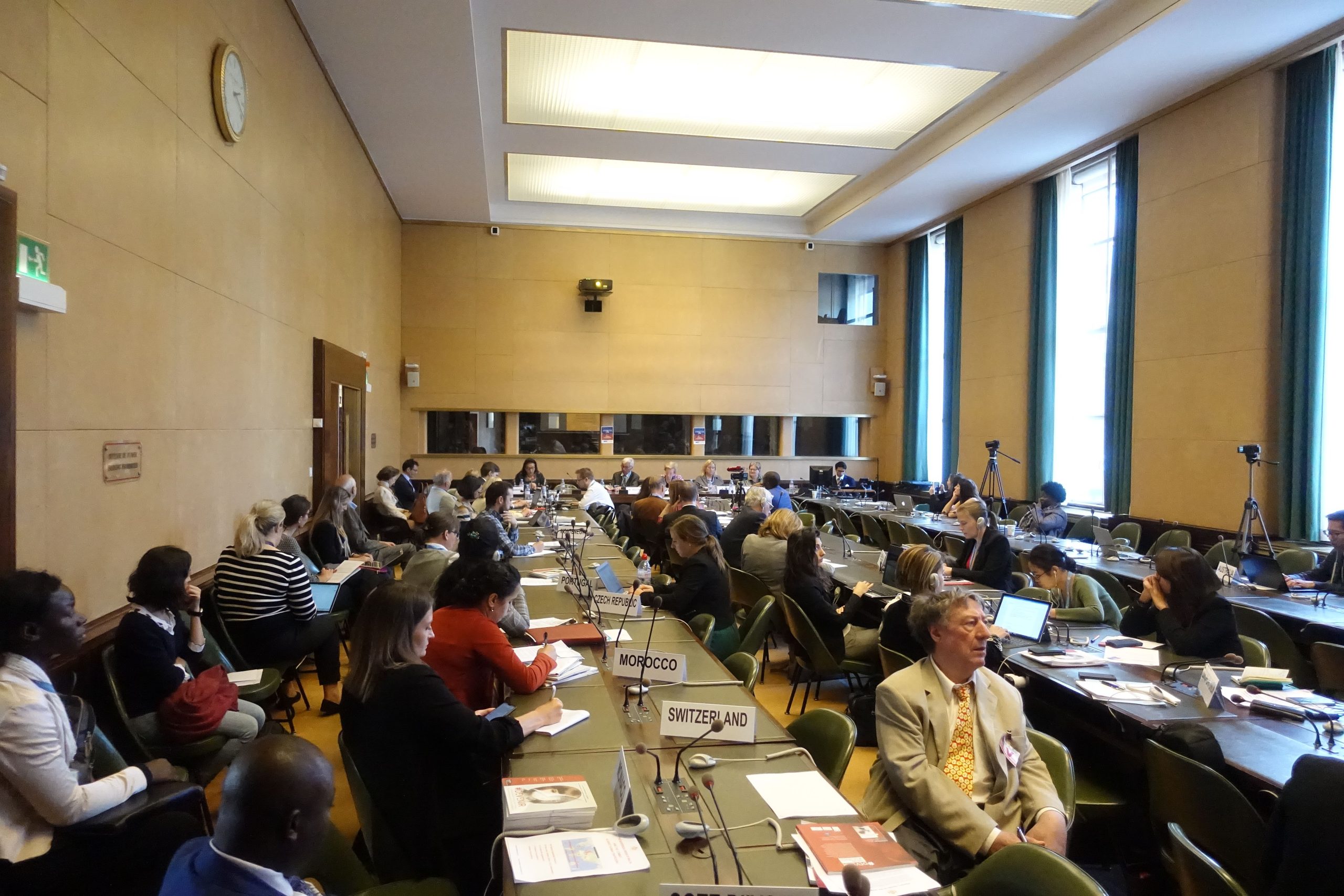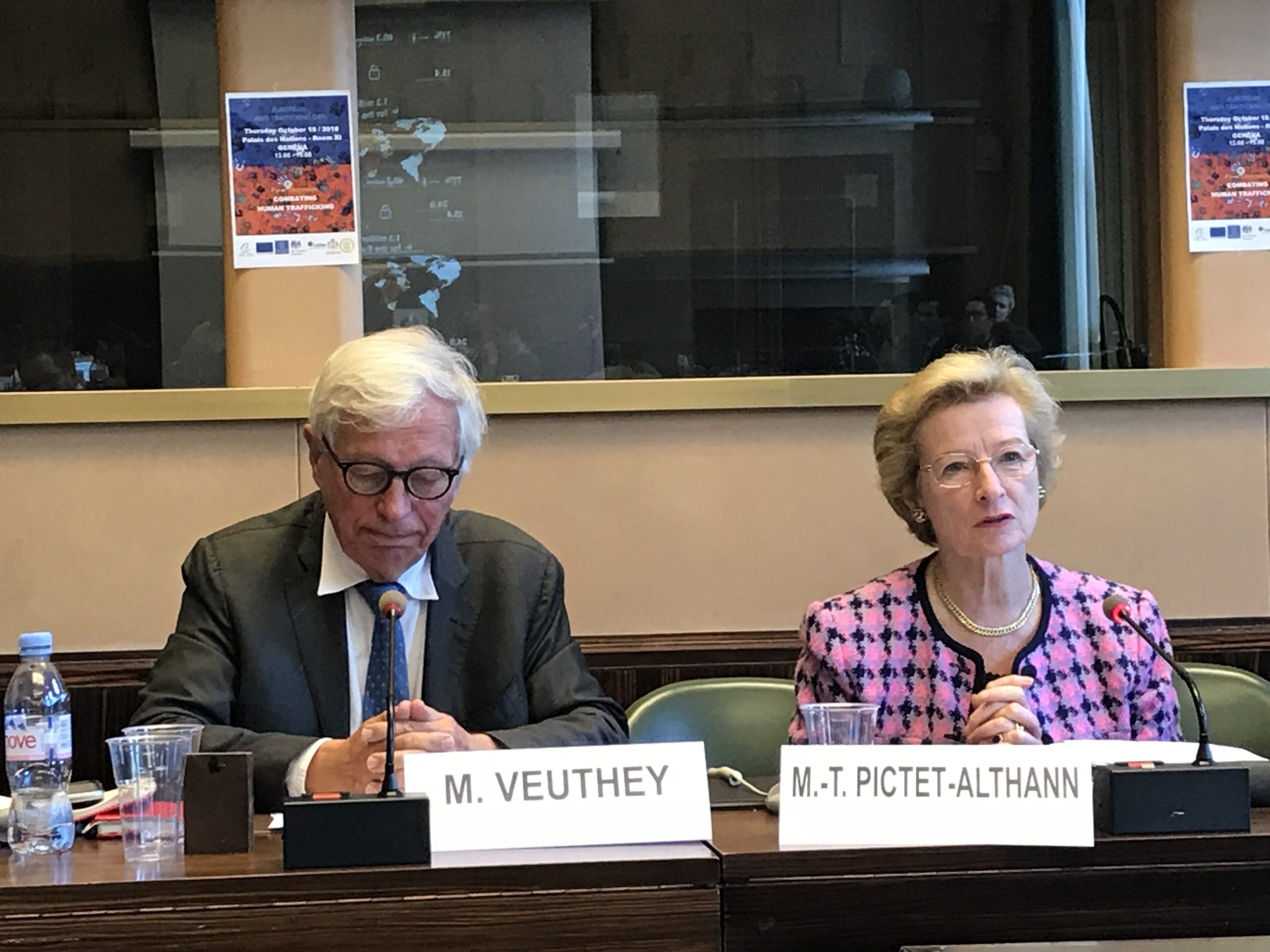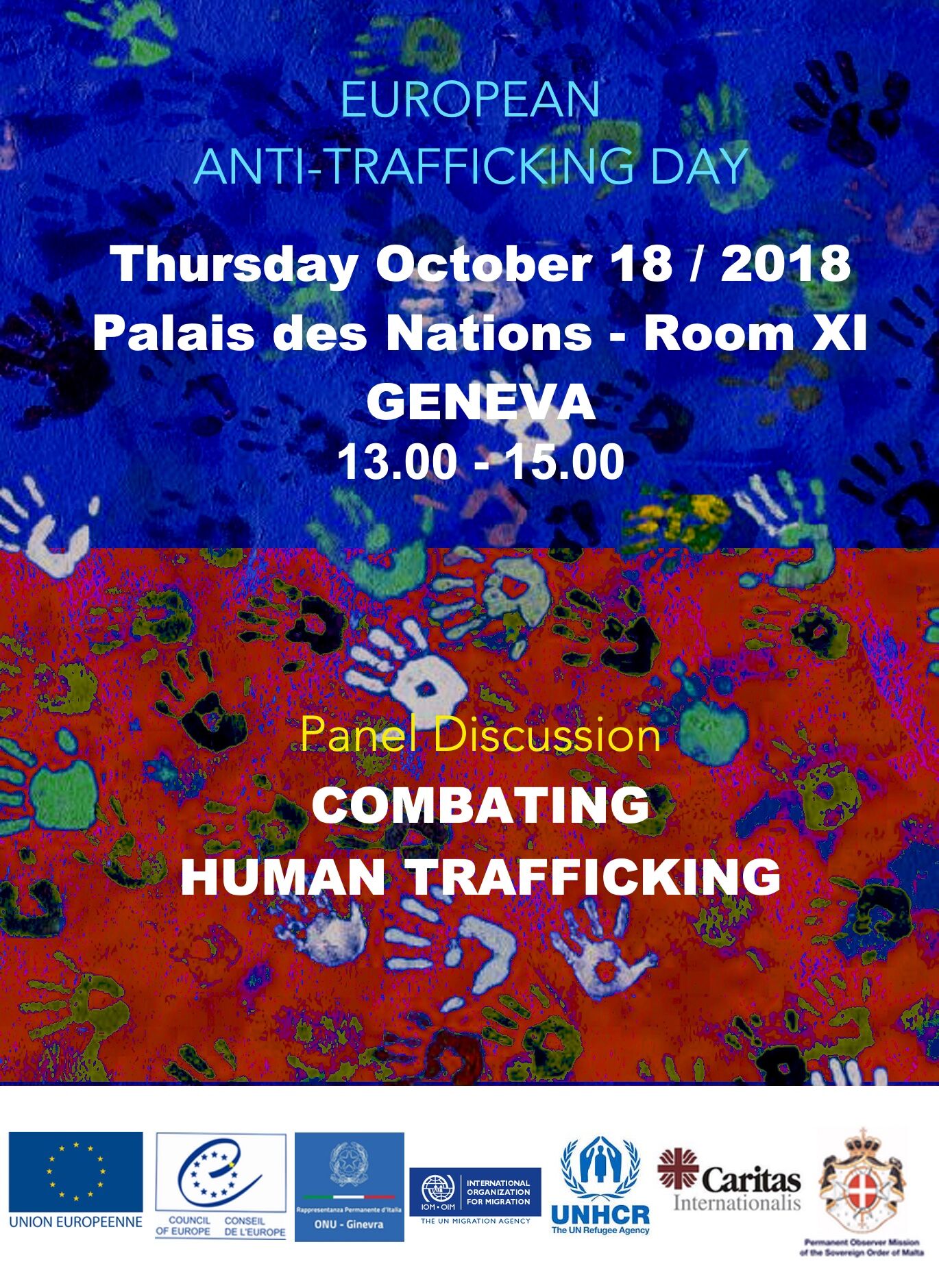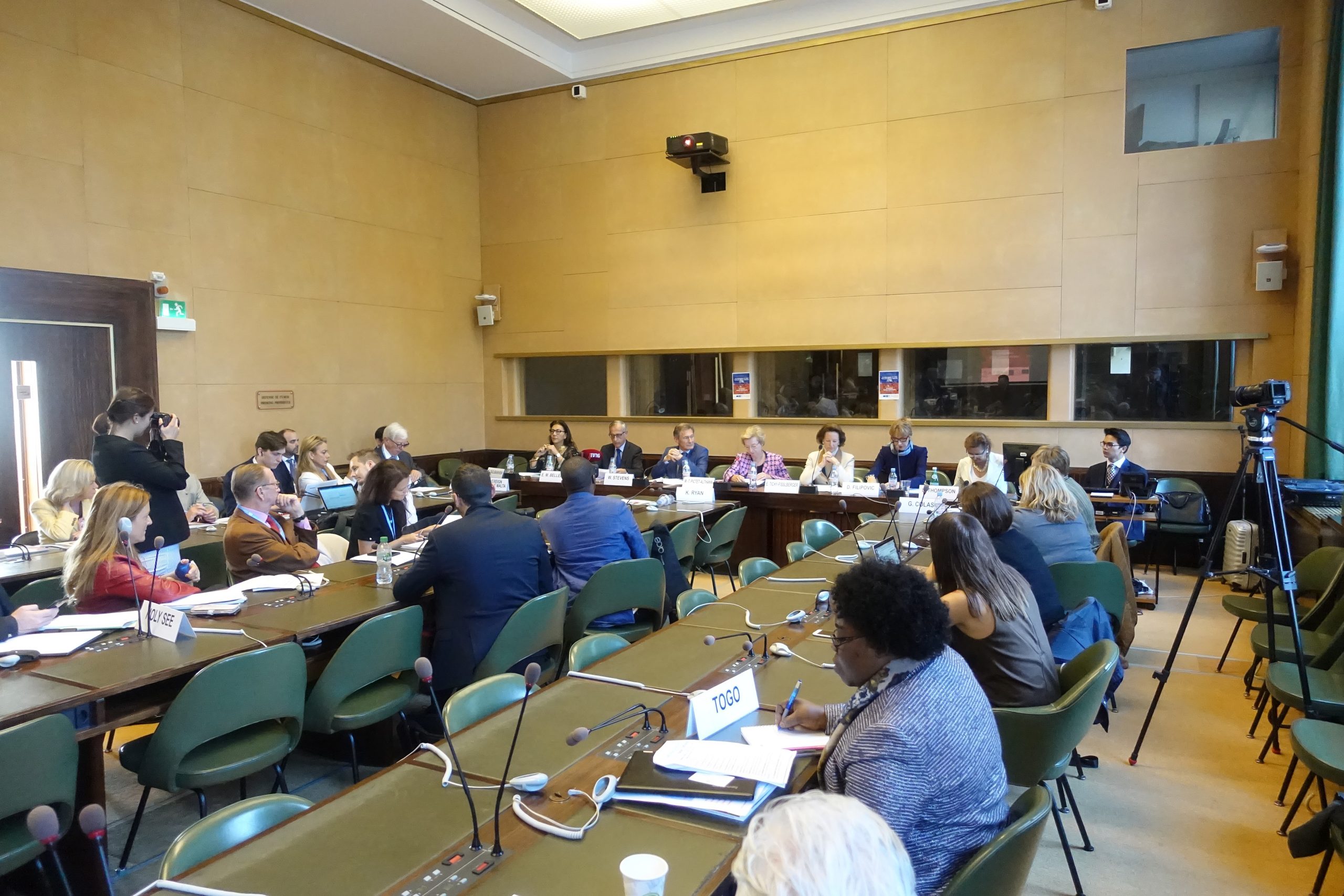On European Anti-Trafficking day, on 18 October 2018, the Mission of the Sovereign Order of Malta to the United Nations in Geneva organized a panel focusing on how to improve measures to combat human trafficking. The event highlighted the paramount need to raise public awareness about modern slavery and to enhance collaboration between governments, international organizations and civil society in order to protect and rehabilitate victims.
Participants to the panel included representatives of the United Nations, the European Union and the Council of Europe, the International Organization for Migration (IOM), and Caritas Internationalis. The discussion underlined the need to work towards a multi folded approach. While national governments bear the primary obligations to reduce the incidence of trafficking, they cannot do this alone. They must work with the victims, with the local and regional communities, with other governments and with the private sector to make progress. An effective approach, in addition, needs to address the supply chain and demand of cheap labour force. With a staggering number of displaced people in the world, there are 25 million victims of human trafficking in construction, agriculture, and sex industry, underlined Deputy Director General of IOM Ambassador Laura Thompson.
Professor Michel Veuthey, Ambassador of the Sovereign Order of Malta to Monitor and Combat Trafficking in Persons, illustrated the global efforts of the Order of Malta, currently active with over two thousand projects in more than 120 countries through medical, social and humanitarian work. “As we commemorate both the 70th anniversary of the Universal Declaration of Human Rights and the abolition of slavery in the 19th century, the Order of Malta would like to reaffirm its commitment to defend human life in all its forms and to bring assistance to the poor, especially the most vulnerable people who are victims of contemporary forms of slavery”.
Veuthey explained that the Order’s effort focusses on raising awareness at community levels, improving supply chain transparency and ethical consumption, supporting and reintegrating slavery survivors.













